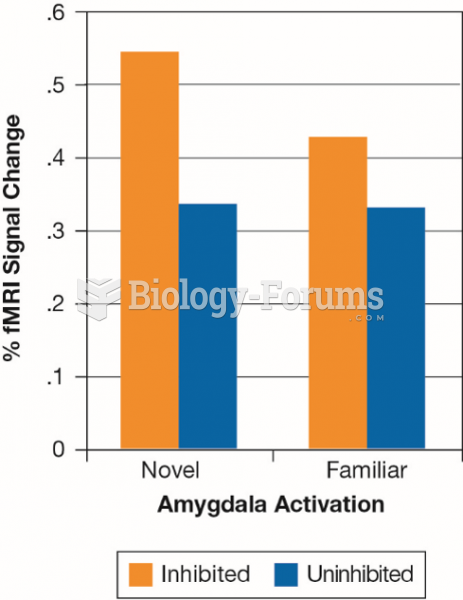|
|
|
To maintain good kidney function, you should drink at least 3 quarts of water daily. Water dilutes urine and helps prevent concentrations of salts and minerals that can lead to kidney stone formation. Chronic dehydration is a major contributor to the development of kidney stones.
In the United States, an estimated 50 million unnecessary antibiotics are prescribed for viral respiratory infections.
Children of people with alcoholism are more inclined to drink alcohol or use hard drugs. In fact, they are 400 times more likely to use hard drugs than those who do not have a family history of alcohol addiction.
The most common treatment options for addiction include psychotherapy, support groups, and individual counseling.
Cyanide works by making the human body unable to use oxygen.







